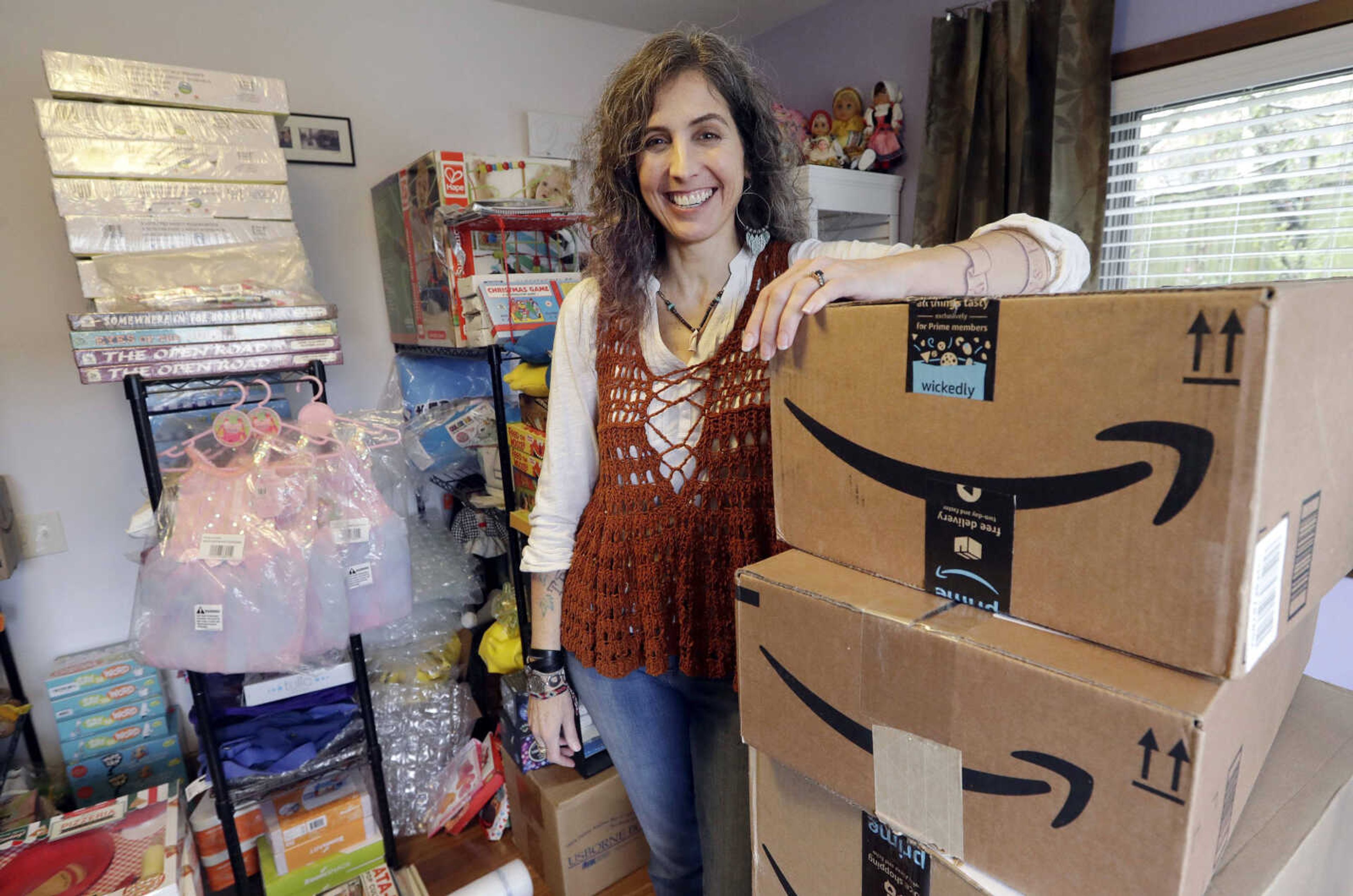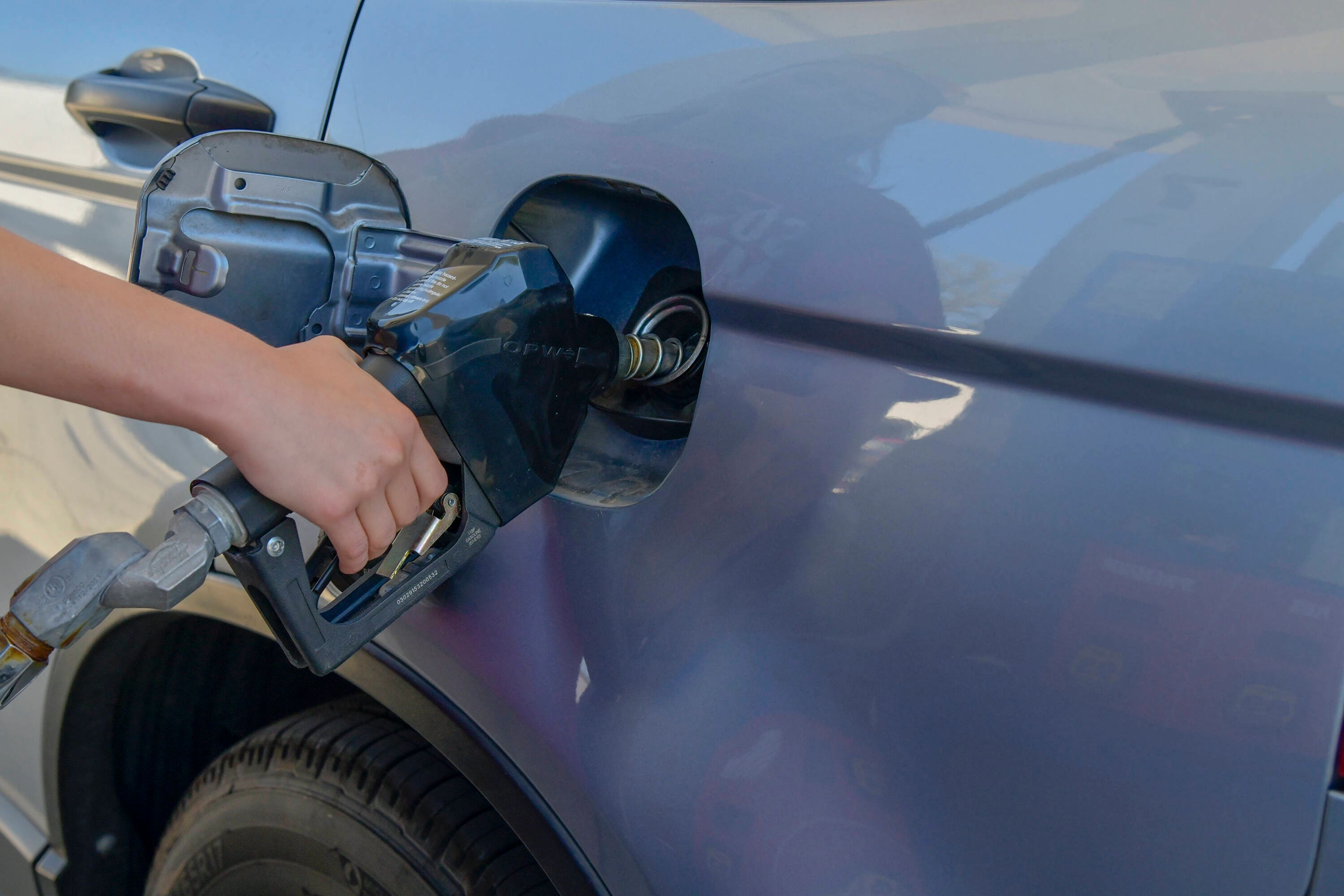Retailers hope for certainty as Supreme Court hears tax case
NEW YORK -- Retailers are hoping for a resolution this year from the Supreme Court, which hears arguments Tuesday in a decades-old dispute: Whether companies must collect sales tax on items sold in a state where they don't have a store or other building...
NEW YORK -- Retailers are hoping for a resolution this year from the Supreme Court, which hears arguments Tuesday in a decades-old dispute: Whether companies must collect sales tax on items sold in a state where they don't have a store or other building.
If the court backs government officials who say they're losing billions of dollars in uncollected taxes, thousands of small companies could be forced to start charging their out-of-state customers for them. Some businesses fear that could alienate customers used to tax-free shopping. On the other side: Retailers who do collect sales tax and believe those who don't have an unfair advantage.
The justices will hear online retailers Wayfair, Overstock.com and Newegg challenging a South Dakota law enacted in May requiring out-of-state retailers that have sales of more than $100,000 or more than 200 transactions a year in the state to collect sales tax. Their decision could have national implications on e-commerce, although Congress can pass legislation afterward that broadens or narrows the law.
It's not only about the money, said Stephanie Harvey, owner of exit343design in Conshohocken, Pennsylvania. There are more than 10,000 sales tax jurisdictions in the United States: 45 states, the District of Columbia, counties and municipalities.
"Adding this sales tax isn't just about the tax itself -- it's about the cost of time to navigate and file (taxes) or the additional expense of hiring someone to do so on behalf of the business," said Harvey, whose design and printing company has an online store and sells merchandise to other retailers.
The justices are likely to rule by June on whether to overturn a 1992 decision, Quill v. North Dakota, that said companies cannot be forced to collect sales tax from customers in a state where they don't have a physical presence such as a store or distribution center. Collecting tax from online sales hasn't been a question for big online retailers such as Walmart or Macy's since they have physical stores in most or all states. They also have accounting systems and financial staffs to handle the work.
Small retailers have software options to help collect taxes and do the administrative work, but it's an added cost. Whether it's worth it may depend on how much revenue a seller gets from other states. The most comprehensive software can work with the programs retailers use to process sales transactions. The software sellers determine the correct sales tax rate and submit payments and reports to tax authorities.
Retailers who sell through Amazon.com can also have sales tax collected, although many don't on out-of-state transactions. Amazon itself long resisted collecting sales tax but now does so nationwide on its own merchandise. Some of the smaller sellers say their overhead will increase if Quill is overturned.
"It is going to be a process, and frankly, it would affect the bottom line of the company," said Dave "Lando" Landis, owner of Rocker Rags, an online seller of clothing with photos and logos of rock musicians. The company, based in Albuquerque, New Mexico, gets a small percentage of its sales from out-of-state customers.
Landis uses e-commerce software and expects to link it with a sales tax program if he must start collecting taxes in other states.
"Should we be required to, we'll be on it extremely quickly," he said.
Adrienne Kosewicz pays $3,300 a year for tax collection software to handle payments and reports to her home state, Washington. Her Seattle-based online business, Play It Safe World Toys, sells through Amazon, which handles computation and collection.
"When you expand your reach, costs often come with it. That's business," she said.
It's customer sentiment, not an administrative burden, that concerns Gregory Hook. The vice president at QKiddo, an online children's clothing retailer in New York, worries consumers who don't understand the situation will wonder, "How come a couple of months ago I got this product and I wasn't being charged tax and now I am?"
He's planning on explaining any changes to customers.
"We don't want them to think we're running an unethical business," he said.
Though some retailers aren't daunted by the effort required to collect taxes, the potential for complications is clear, said Bill McClellan, vice president for the industry group Electronic Retailing Association.
"Each situation is going to be a little different, depending on their legacy software, bandwidth. Multiply that across the ecosystem and there just isn't a magic wand," said McClellan, who describes his group's members as split on the out-of-state tax question.
The fact the issue was deemed worthy of hearing by the justices, who usually hear about 75 cases a year out of thousands of appeals, is a sign they believe it's time to reconsider the "fairly antiquated" Quill decision, said Stephanie Martz, general counsel for the National Retail Federation. The industry group filed a brief in support of that ruling being overturned.
Justice Anthony Kennedy noted in a 2015 opinion accompanying a decision in a Colorado tax case that "given these changes in technology and consumer sophistication, it is unwise to delay any longer a reconsideration of the court's holding."
In Congress, bills requiring retailers to collect tax on out-of-state purchase have been introduced periodically during the past decade only to languish and die. Lawmakers are divided over the burden tax collection would create for small retailers. A bill currently in Congress exempts retailers with up to $1 million in annual out-of-state sales.
"If South Dakota wins, I think we'll see a big push in Congress by the business community to try to limit the court's decision," said Scott Peterson, vice president for tax policy at Avalara, a maker of tax collection software.
Follow Joyce Rosenberg at www.twitter.com/JoyceMRosenberg. Her work can be found here: https://apnews.com/search/joyce%20rosenberg
Connect with the Southeast Missourian Newsroom:
For corrections to this story or other insights for the editor, click here. To submit a letter to the editor, click here. To learn about the Southeast Missourian’s AI Policy, click here.






